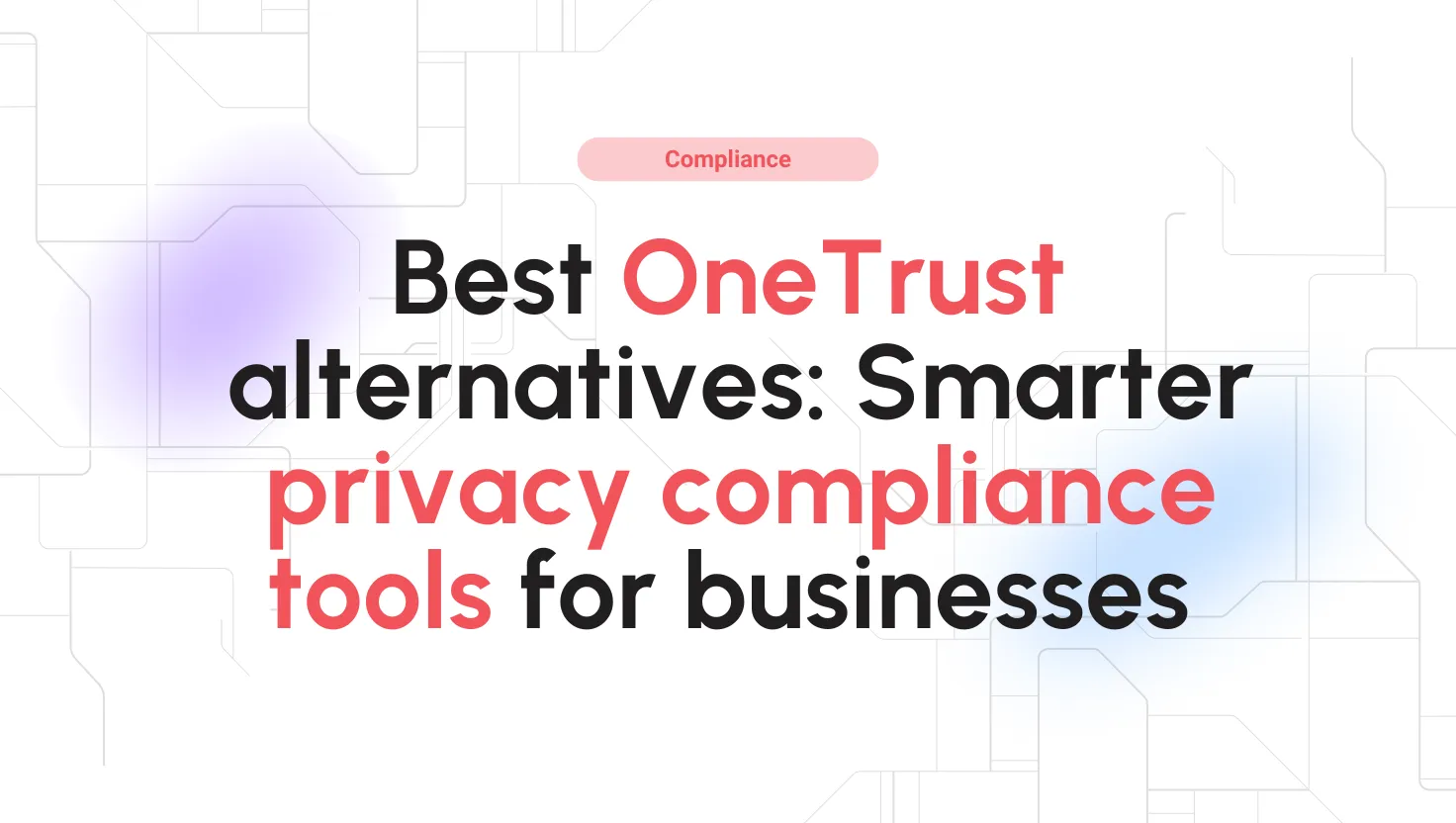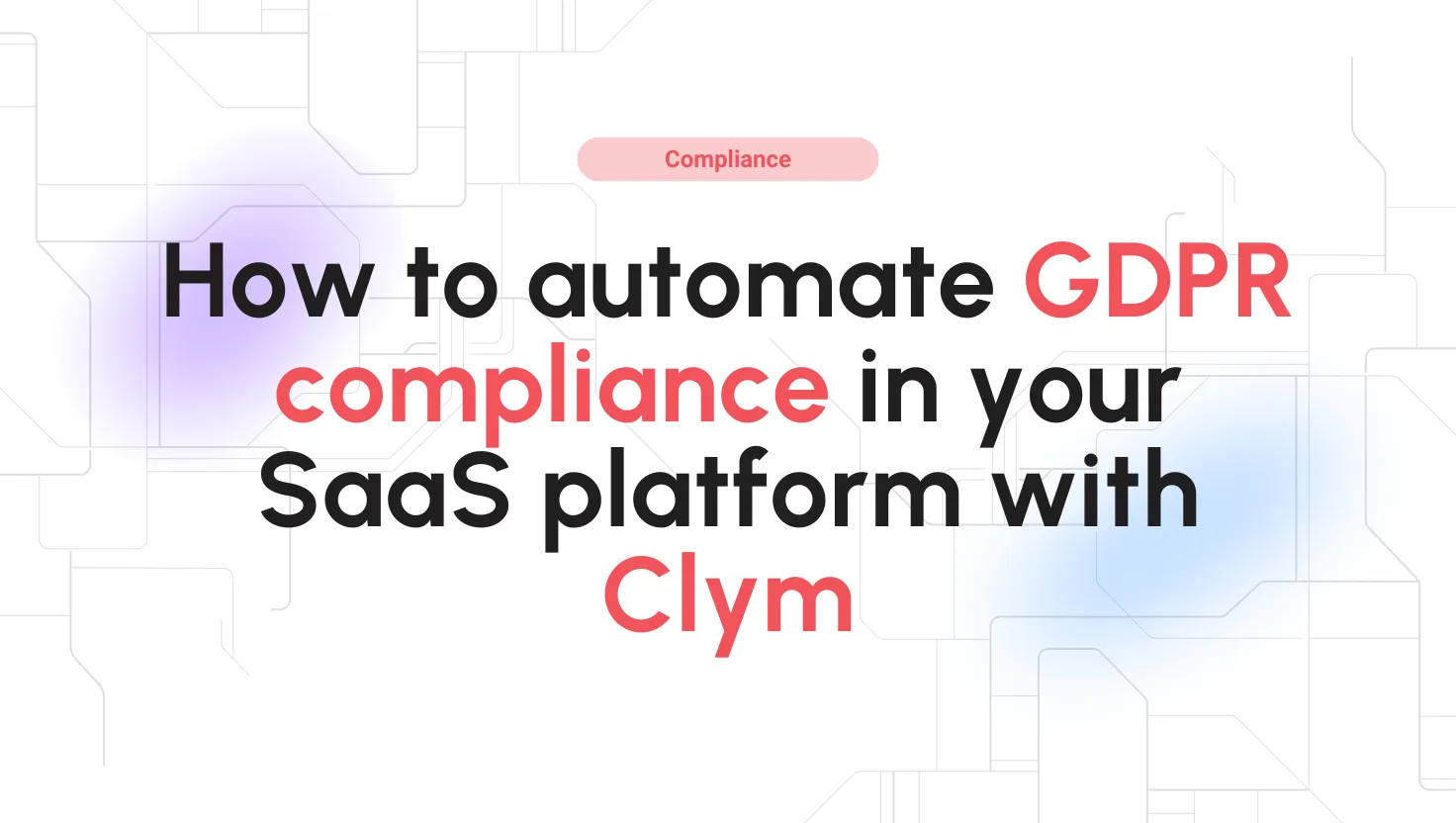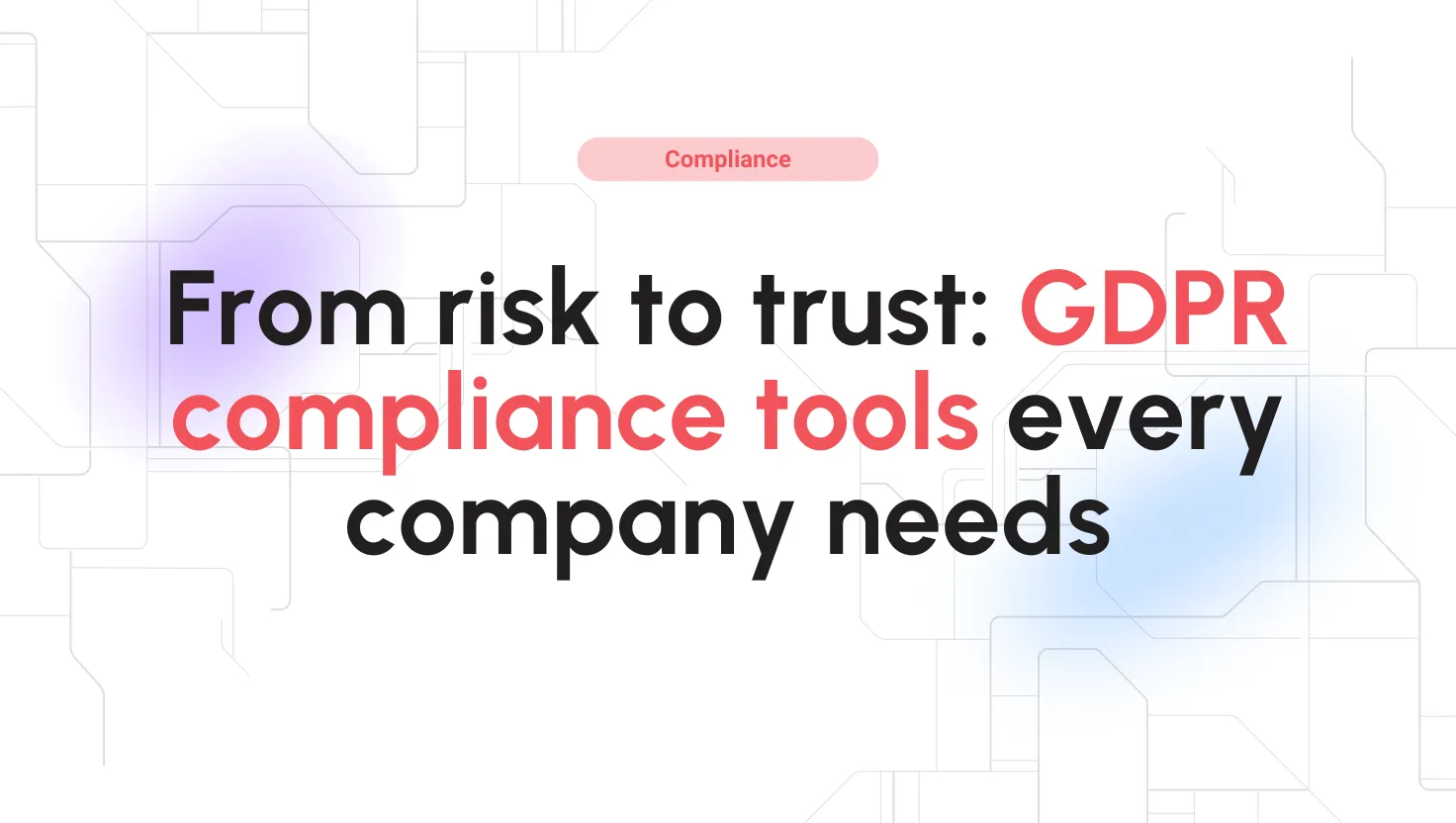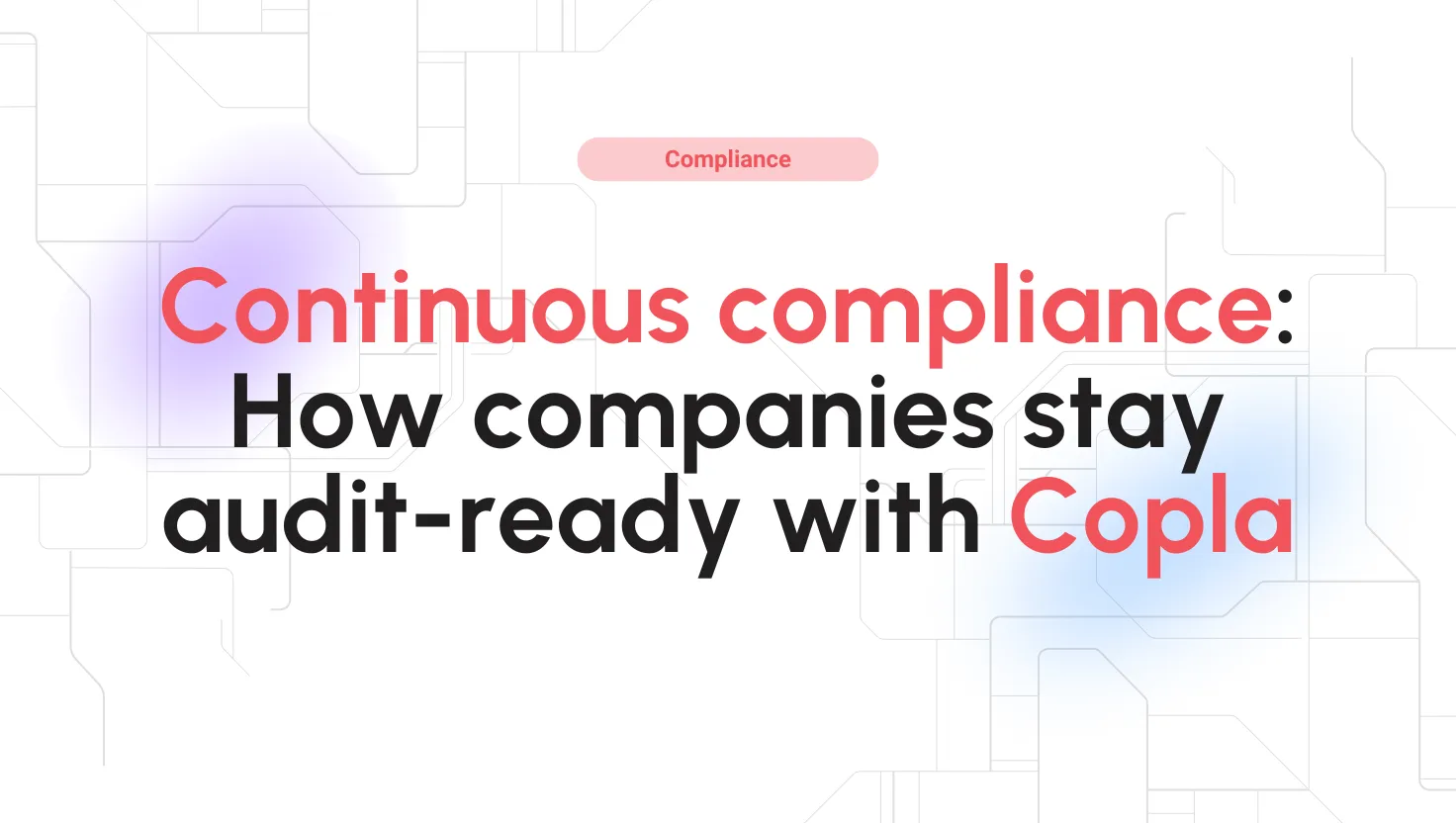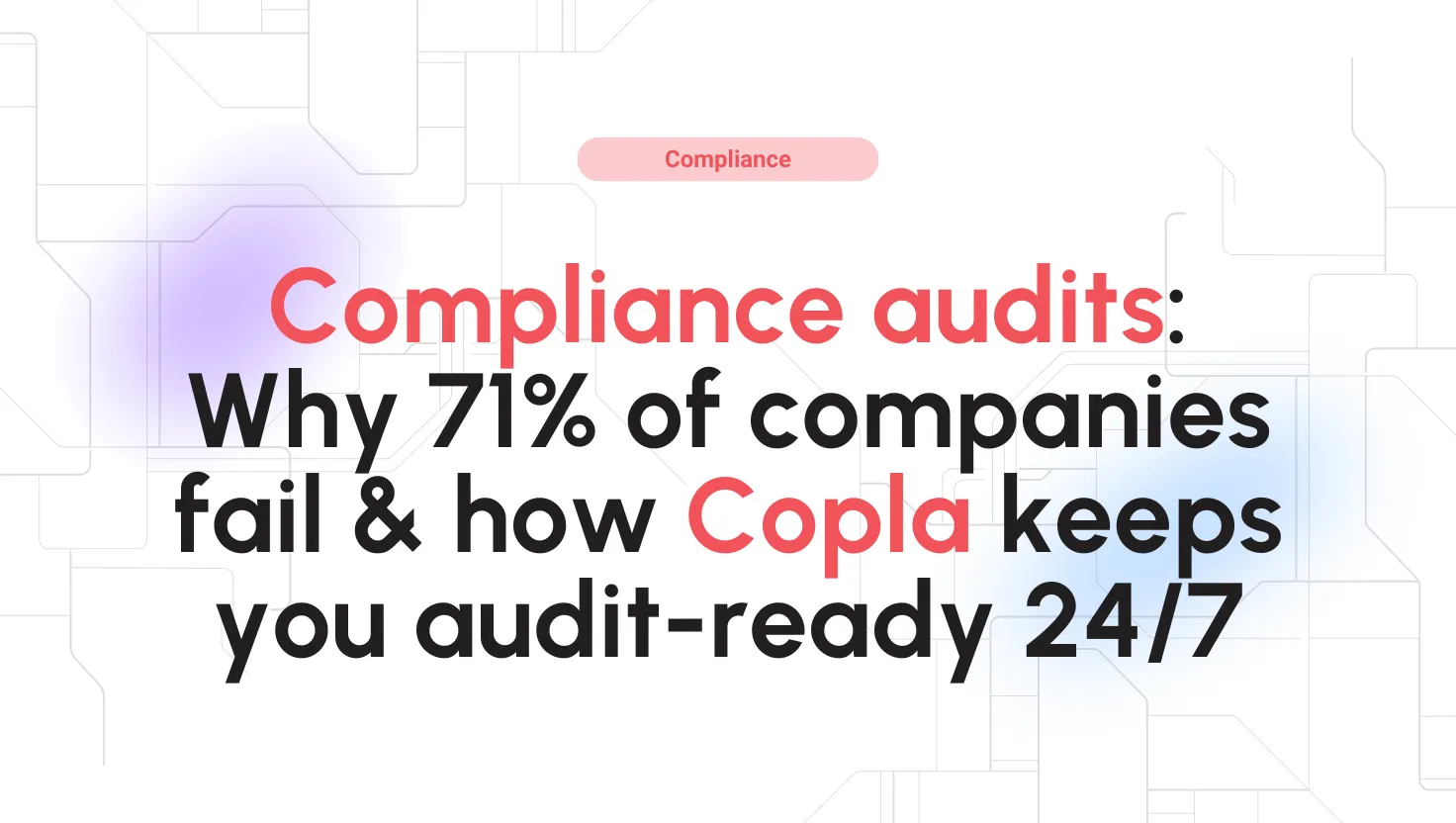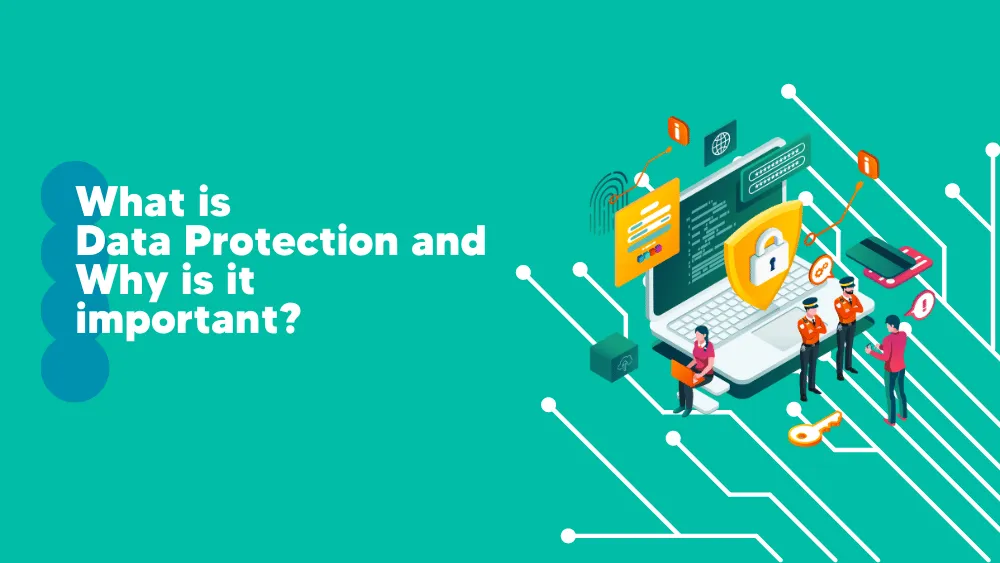OneTrust is a leading data privacy and compliance software, but many businesses are now seeking more affordable and agile alternatives. High costs, long contracts, and a complex interface are among the main reasons organizations switch from OneTrust.
In this article, I will highlight the three best OneTrust competitors to help you find the right compliance software for your needs. I will compare features, pricing (using figures from vendor websites globally), and value for money.
Whether you’re a SaaS startup or a mid-market enterprise, these OneTrust alternatives offer robust data privacy tools, compliance software capabilities, and even GDPR automation features at a lower cost.
Clym vs OneTrust
Clym emerges as a top OneTrust competitor, offering an all-in-one privacy compliance platform tailored for mid-market businesses.
Clym is praised as an “economical compliance solution” that is user-friendly and visually appealing, providing immediate protection for your business. Both OneTrust and Clym cover the essentials – cookie consent banners, data subject access request (DSAR) handling, privacy policy, and “Do Not Sell My Info” opt-outs – to help comply with laws like GDPR and CCPA.
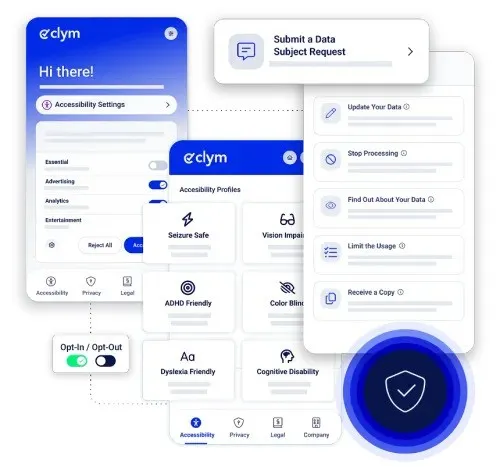
However, Clym vs OneTrust differs greatly in approach: Clym consolidates these features in a single, easy-to-use application, whereas OneTrust offers a suite of complex modules that can be overkill (and overpriced) for many mid-sized companies.
Clym features
Clym provides six core compliance areas out of the box:
- Consent management – Tools for cookie consent and user preferences management across global jurisdictions.
- DSAR automation – Built-in workflows to manage data access or deletion requests (GDPR “Right to be Forgotten”, CCPA requests, etc.).
- Compliance documentation – Hosting your company’s privacy policies, terms, and data processing agreements in one portal.
- Localization & Regulations – Support for 150+ global regulations (GDPR, CCPA, LGPD, etc.) and multi-language consent forms, ensuring compliance in different regions.
- Governance portal & Data oversight – A central dashboard for your team (including Data Protection Officer) to monitor consent logs, policy updates, and compliance status.
- Integrations & API – Clym integrates with popular web platforms (e.g. WordPress, Shopify, HubSpot, Google Analytics) and offers an API for seamless deployment in SaaS products. This is ideal for tech companies needing to embed compliance into their apps.
OneTrust features
OneTrust, by contrast, has a pervasive feature set (consent, data mapping, vendor risk, incident management, etc.). Still, many of those features may be beyond the scope of what a mid-market business actually uses day-to-day.
Crucially, OneTrust’s breadth comes with complexity – users often cite a steep learning curve and cluttered interface as pain points. Clym focuses on the features that most companies need for privacy compliance, delivered in a more accessible way.
Clym vs OneTrust pricing
Pricing is where Clym vs OneTrust shows the most significant contrast in value. OneTrust typically “ships with a hefty price tag and long contracts”. In fact, OneTrust’s a la carte pricing can easily exceed $1000 per month for a complete compliance bundle.
For example, a OneTrust CCPA compliance package (consent + DSAR + policies) is around $1,125/month for one domain.
Clym, on the other hand, publishes transparent, flat-rate plans on its website: Start at $49/month and Grow at $149/month (covering up to 1.5 million pageviews). Even Clym’s highest Enterprise tier begins at $449/month for multiple domains – still a fraction of OneTrust’s cost for comparable functionality.
Start your free Clym trial – no strings, just compliance made easy.
Clym includes essentials like cookie consent, DSAR management, privacy policy generator, and even web accessibility tools in these plans, delivering far better ROI.
In short, a mid-market firm might pay 10X more with OneTrust for similar capabilities.
Additionally, Clym’s pricing is flexible: plans are month-to-month with no annual lock-in, and a free trial is available with no credit card required. By contrast, OneTrust usually requires a yearly contract and only offers a 30-day trial on select modules, with penalties for early termination.
Key takeaway
Why Clym stands out
For B2B decision-makers, the bottom line is that Clym delivers 90% of the functionality a typical company needs at a much lower price point. It’s an ideal OneTrust alternative for SaaS firms and mid-market businesses that want to “set and forget” their compliance program without breaking the bank.
Consider taking advantage of Clym’s free trial to experience its intuitive interface and GDPR automation features firsthand. It could save your organization tens of thousands per year while streamlining compliance.
TrustArc vs OneTrust
TrustArc (formerly TRUSTe) is another major OneTrust competitor, known for its long legacy in the privacy industry.
TrustArc and OneTrust offer very similar enterprise-grade feature sets: consent management, data mapping, privacy assessments (PIA/DPIA), incident management, policy and vendor risk management, and more. TrustArc has been around since 1997 and has built a strong reputation (many companies still recognize the “TRUSTe Certified Privacy” seal).
However, there are key differences in the target market and approach that affect which is better for your organization.
Features & Capabilities
TrustArc’s platform, also known as PrivacyCentral, offers a privacy program dashboard, data flow inventory, risk profiling, assessment management, and a research portal for regulatory updates.
The focus on privacy management and consulting tools shows TrustArc’s long history of helping companies stay compliant. Its consent management module is highly rated and meets global legal standards, including IAB TCF support and multi-framework compliance.
If you are looking for an alternative to OneTrust that can match its advanced features, such as third-party risk management or AI governance, TrustArc is one of the few strong options.
Many mid-sized companies say TrustArc is hard to use and does not connect well with other tools. In contrast, OneTrust has more integrations and a simpler marketplace, which can help smaller tech teams that do not have a lot of IT support.
OneTrust vs TrustArc pricing
If you find OneTrust expensive, TrustArc is similarly priced. TrustArc does not share its pricing on the website, which many users find frustrating.
According to outside sources, TrustArc’s basic package starts at about $10,000 per year. This works out to roughly $833 per month, showing that TrustArc, like OneTrust, is aimed at larger contracts.
Usually, you will need to reach out to TrustArc for a custom quote, especially if you want several modules or enterprise features.
There is no free plan, but you might be able to get a free trial or demo from their sales team. Overall, TrustArc’s pricing is more like OneTrust than solutions for small businesses.
Bottom line
Osano vs OneTrust
If OneTrust and TrustArc seem too big or expensive for your business, Osano could be a better fit. Osano is recognized for its cookie consent tool and stands out with its ‘No Fines, No Penalties’ guarantee for enterprise customers.
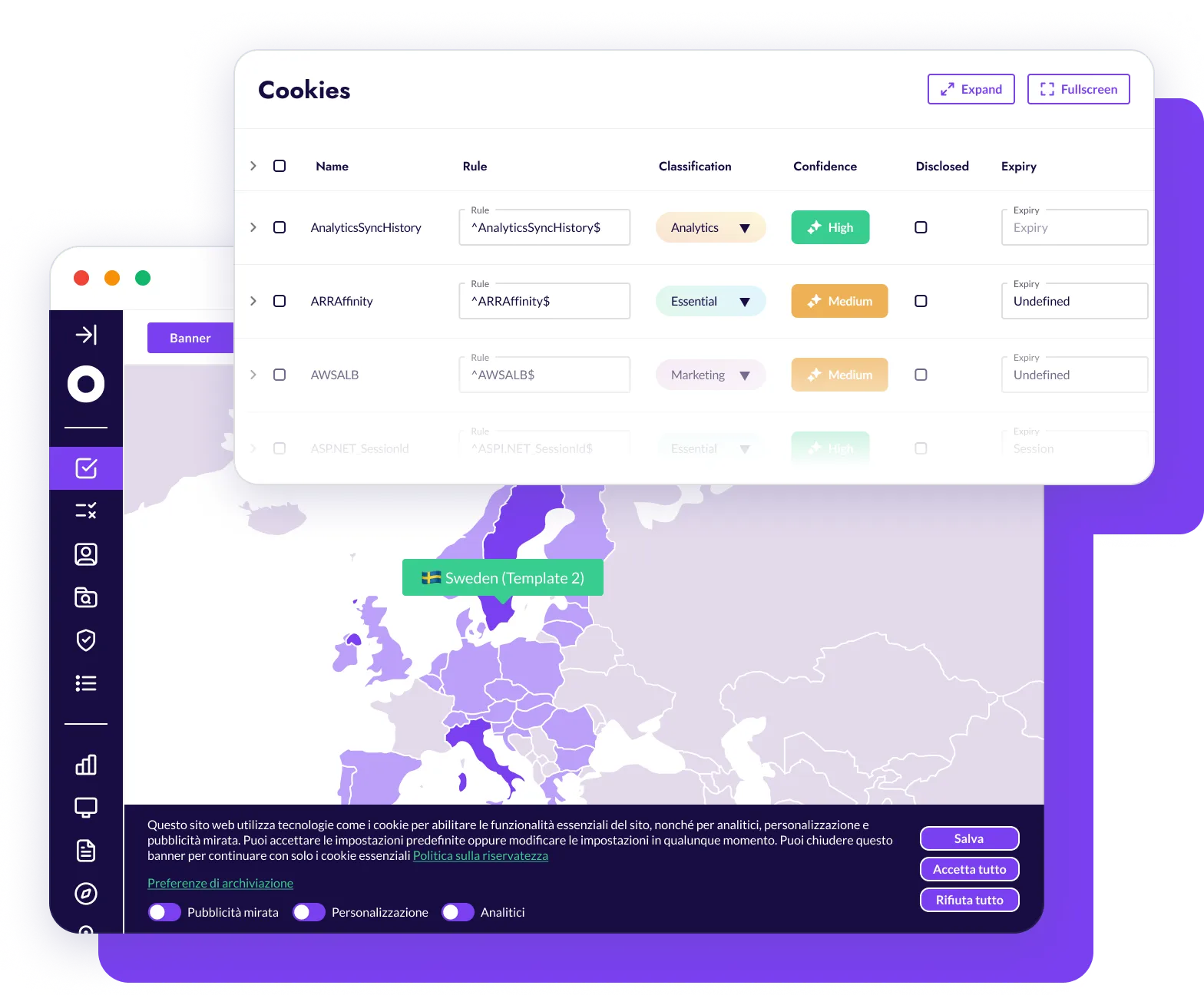
This shows their confidence in helping you stay compliant, but what really makes Osano attractive is how simple and easy it is to get started. Their cloud-based Consent Management Platform is quick to set up, and you can add more privacy features as your needs grow.
Osano features
-
Consent & Preference Management
Osano’s consent manager creates customizable cookie banners, scans for cookies, and blocks trackers until users consent. It offers compliance in 50+ countries, stores consent records, and provides opt-in analytics. As a Google-certified CMP, it’s compatible with Google’s Consent Mode.
-
Subject Rights (DSAR) Automation
Similar to OneTrust, Osano offers a DSAR workflow tool to handle user requests to access or delete data. Requests are centralized in a dashboard, with routing to the appropriate team and status tracking.
-
Data Mapping
Osano includes a data discovery module that maps personal data across your systems. It can automatically identify what user data you store and where (databases, SaaS apps, etc.), classify it by sensitivity, and even visualize data flows.
This is a more advanced feature that not all OneTrust competitors offer, giving Osano an edge for companies concerned with GDPR Article 30 record-keeping or understanding data lineage.
-
Vendor risk management
Uniquely, Osano’s higher-tier plans incorporate tools to evaluate third-party vendors’ privacy postures. Osano maintains a database of vendor privacy ratings, alerts you to any changes (like a vendor updating their privacy policy), and helps manage contracts.
OneTrust is famous for its vendor risk module, so, notably, Osano brings some of that functionality in a smaller package.
Key takeaways
Osano pricing
Osano stands out with a free plan for small websites and simple, self-service pricing. The $199/month plan covers up to 30,000 visitors and offers more features at a lower entry price than OneTrust. Larger organizations need custom pricing.
Osano’s lower tiers focus on consent. Advanced features require higher plans, but even then, Osano is usually cheaper than OneTrust and includes more domains per plan.
Why choose Osano
Choosing the best OneTrust alternative
When comparing OneTrust vs Clym vs TrustArc vs Osano, the “best” alternative ultimately depends on your company’s size, budget, and specific needs:
Best for mid-market ROI
Clym offers the best ROI for most mid-market and SaaS companies, delivering a broad compliance toolset at a flat, reasonable cost. Its plans starting at $49–$149/month cover what you’d pay thousands for with OneTrust. Clym’s all-in-one approach means you’re not nickel-and-dimed for each feature, and you avoid OneTrust’s pricey add-ons and lengthy contracts.
Best for enterprise features
If your organization requires the absolute breadth of compliance features (and has a budget to match), OneTrust itself or TrustArc will meet those needs. TrustArc, in particular, is a credible OneTrust competitor for large enterprises that need everything from GDPR to vendor risk to privacy program consulting. Just be prepared for enterprise-level pricing (starting ~$10k/year) and complexity.
Best for quick start and simplicity
If you’re a startup or small business (or only need cookie consent done right), Osano is highly convenient. Its free tier and user-friendly consent manager can get you compliant literally in a day or two. This is something OneTrust – with its heavy sales process – cannot offer. Osano’s scalability into a fuller platform is a bonus, but consider your long-term growth to ensure it will remain cost-effective as you expand.
Final verdict on choosing an alternative to OneTrust
The goal is to find a compliance solution that matches your business. You shouldn’t have to change your business to fit the software.
There are many alternatives to OneTrust because every company has its own needs. Feel free to use free trials, demos, and comparisons. For example, you might try Clym’s trial and Osano’s free version to see which one your team likes best, or request a TrustArc demo to see how thorough it is.
Finally, make sure any option you choose keeps you fully compliant so you avoid penalties. All the options mentioned support major regulations like GDPR, CCPA, LGPD, and others.
Compliance is essential. What sets them apart is the cost and the ease of staying compliant over time.

